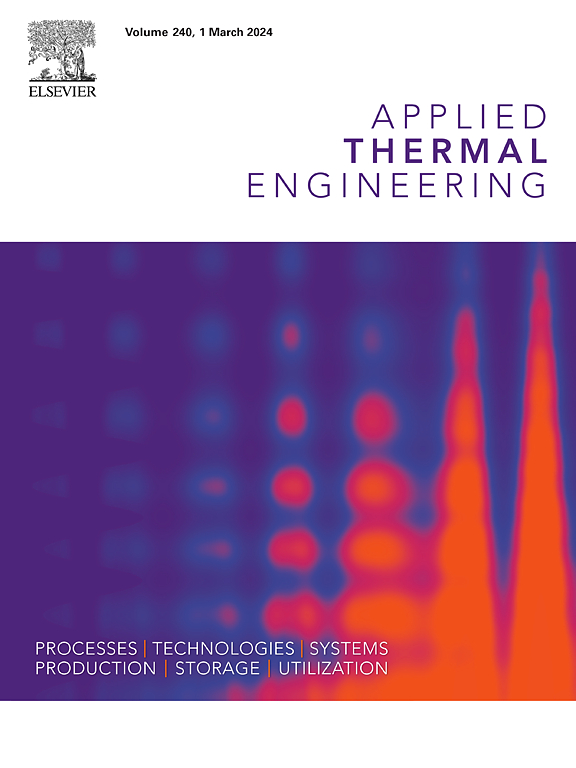Hybrid absorption chiller to improve energy efficiency in combined cooling, heating, and power system
IF 6.1
2区 工程技术
Q2 ENERGY & FUELS
引用次数: 0
Abstract
As urban energy demands continue to rise, hybrid systems capable of utilizing diverse waste heat sources—including LNG combustion, exhaust gases, steam, and hot water—provide a sustainable solution by maximizing energy recovery and enhancing operational flexibility. This study presents the design, simulation, and experimental performance evaluation of a hybrid absorption chiller system utilizing multiple heat sources to improve energy efficiency in combined cooling, heating, and power (CCHP) applications. Simulation analyses compared the energy performance of series and parallel flow configurations, revealing that the hybrid system delivers significantly higher cooling capacity and performance than conventional single-source absorption chillers when total energy input is considered.
Simulation results indicated that the series flow configuration enhanced both cooling capacity and the coefficient of performance (COP) by 69% compared to conventional systems. Experimental results further demonstrated that, in hybrid mode-—integrating LNG and waste heat— the COP reached 2.27, representing a 74.9% improvement over single-source LNG-powered absorption chillers. Moreover, the hybrid system reduced LNG consumption by approximately 43%, highlighting its potential for significant energy savings and greenhouse gas emissions reduction. This study underscores the feasibility of multi-source hybrid absorption chillers as an environmentally sustainable and economically viable alternative for industrial and commercial CCHP applications.
混合吸收式制冷机提高冷热电联供系统的能效
随着城市能源需求的不断增加,能够利用各种废热源(包括液化天然气燃烧、废气、蒸汽和热水)的混合系统能够最大限度地回收能源并提高运行灵活性,从而提供一种可持续的解决方案。本研究介绍了利用多种热源的混合吸收式冷水机组系统的设计、模拟和实验性能评估,以提高冷热电联供(CCHP)应用的能效。仿真分析比较了串联流和并联流配置的能源性能,结果表明,在考虑总能源输入的情况下,混合系统的制冷能力和性能明显高于传统的单源吸收式冷水机组。实验结果进一步表明,在混合模式下--整合了液化天然气和废热--COP 达到 2.27,与单源液化天然气动力吸收式冷却器相比提高了 74.9%。此外,混合系统还减少了约 43% 的液化天然气消耗量,凸显了其显著节能和减少温室气体排放的潜力。这项研究强调了多源混合吸收式制冷机作为工业和商业冷热电三联供应用的一种环境可持续且经济可行的替代方案的可行性。
本文章由计算机程序翻译,如有差异,请以英文原文为准。
求助全文
约1分钟内获得全文
求助全文
来源期刊

Applied Thermal Engineering
工程技术-工程:机械
CiteScore
11.30
自引率
15.60%
发文量
1474
审稿时长
57 days
期刊介绍:
Applied Thermal Engineering disseminates novel research related to the design, development and demonstration of components, devices, equipment, technologies and systems involving thermal processes for the production, storage, utilization and conservation of energy, with a focus on engineering application.
The journal publishes high-quality and high-impact Original Research Articles, Review Articles, Short Communications and Letters to the Editor on cutting-edge innovations in research, and recent advances or issues of interest to the thermal engineering community.
 求助内容:
求助内容: 应助结果提醒方式:
应助结果提醒方式:


